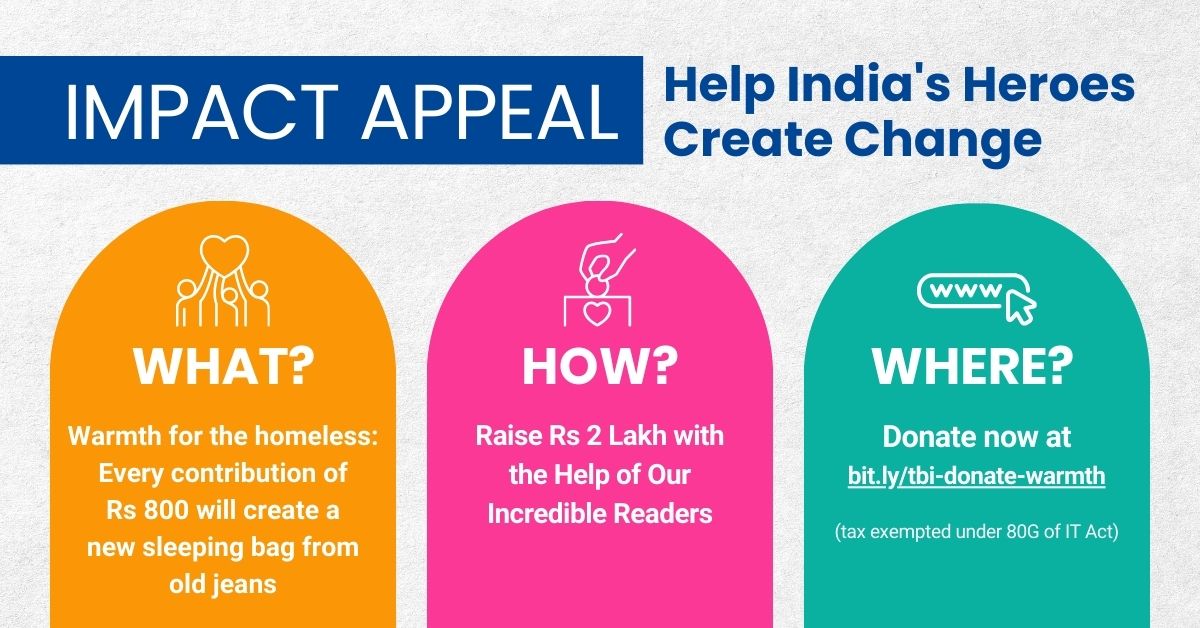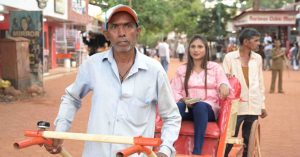Warmth for the Homeless: Every Contribution of Rs 800 Will Create a New Sleeping Bag From Old Jeans
By donating Rs 800, you can help give cosy sleeping bags to the homeless, all made from recycled jeans! This campaign by The Better India and Project Jeans – Blue to Green, led by Nirvaan Somany, will not just help those in need, but will also enable you to cut down on carbon emissions caused during manufacturing of jeans.
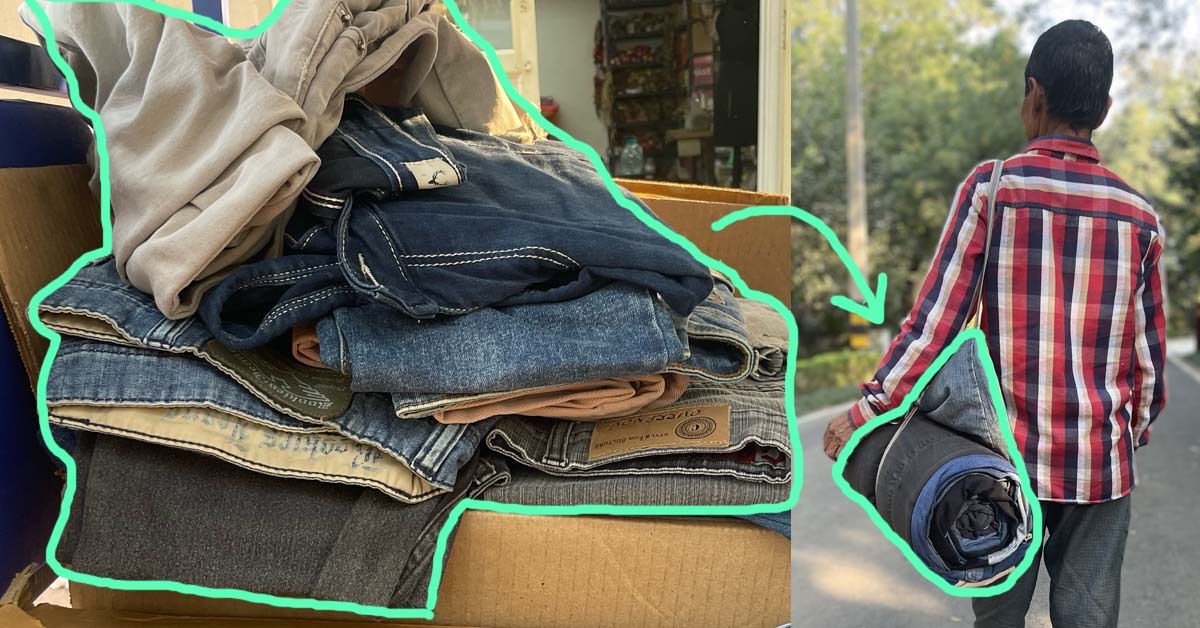
For over a decade, your incredible support has helped our stories turn into a force for good. With our new IMPACT APPEAL feature, we hope to do a lot more.
Every time you donate, you will be joining hands with India’s most inspiring heroes to create an impact on the lives of thousands. Each of us can make a difference. And together, we can create the change we want to see.
Every second, the world disposes of or burns clothing equivalent to a truckload. This alarming statistic underscores the severe environmental consequences of the fast fashion industry and our collective actions.
In 2019, a 13-year-old named Nirvaan Somany encountered another staggering statistic that made him get up, take notice and act. He read a United Nations article which stated that 10,000 litres of water are needed to produce a single pair of jeans.
Do you know how much water that is?
To put this into perspective, consider that urban areas, as recommended by the Ministry of Jal Shakti, should receive 135 litres of water per person per day, while rural households should get 55 litres per person per day. On average, if an individual consumes approximately 100 litres daily, the water used to make one pair of jeans equals the amount one person in India uses over 100 days in urban areas or almost 180 days in rural areas.
In essence, one pair of jeans utilises the water needed by one person in rural India for nearly six months!
Upon learning this, the teenager promptly opened his closet and realised he had a lifetime supply of water neatly folded in the form of clothes. The revelation shocked him, highlighting the profound environmental impact of clothing consumption.
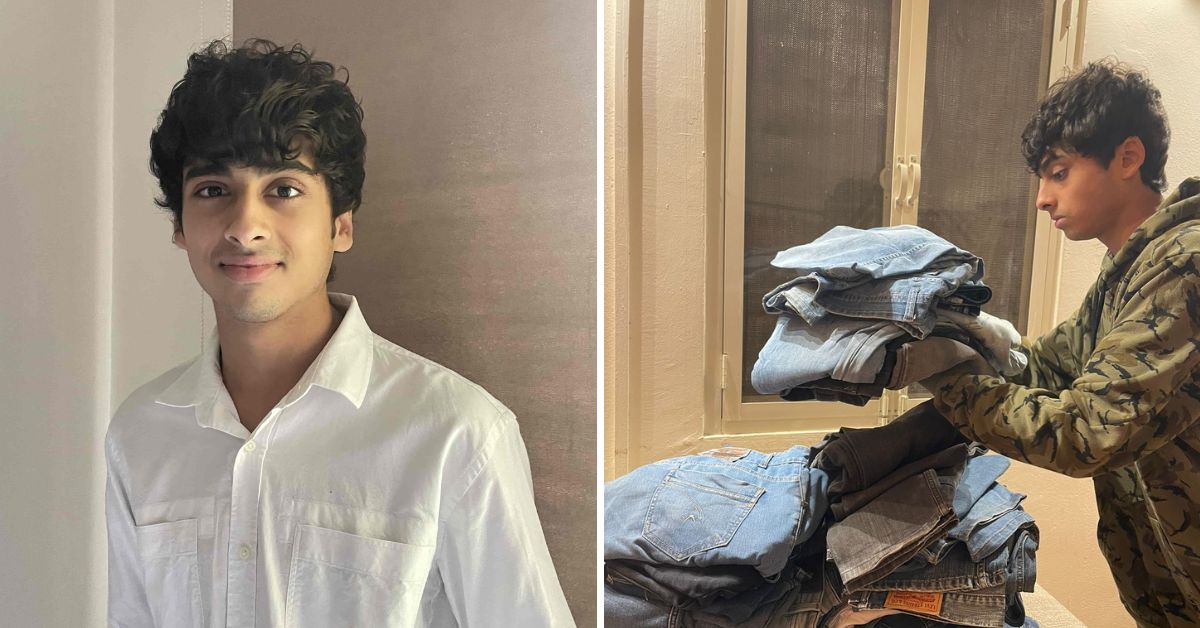
This incident happened during the winter season, as the Delhi resident observed his family donating blankets to the underprivileged on the streets. Nirvaan recognised that blankets offered only a short-term solution and might not endure the harsh winters in the national capital.
To address this, he decided to kill two birds with one stone: repurposing old denim to create sleeping bags. This initiative not only prevented jeans from ending up in landfills but also offered a durable and warm sleeping option for the homeless during freezing winters.
Started in 2022, ‘Project Jeans — Blue To Green’ has distributed over 2,000 sleeping bags across Delhi-NCR, Himachal, Bengaluru, Pune, and even Turkey and Syria by recycling over 12,000 jeans in the past two years.
A warm hug on cold winter nights
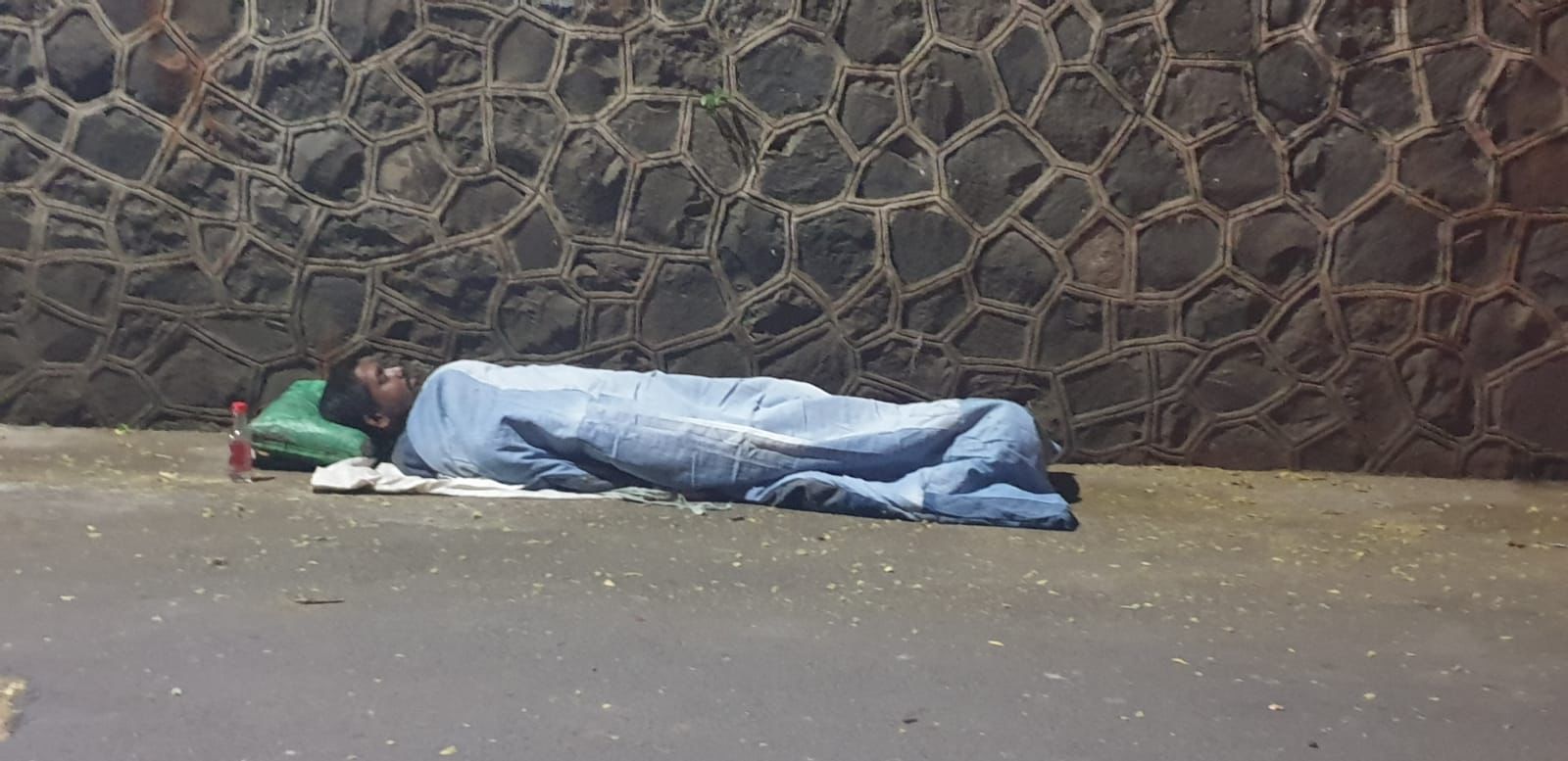
Project Jeans first began as a business pitch by a 17-year-old at the Young Entrepreneurs Academy. His proposal involved crafting sleeping bags from old jeans, and the idea received positive feedback. The inspiration for these sleeping bags came to him after experiencing the comfort of one during a camp, which helped him understand the practicality of the idea.
Why did he think of jeans to make sleeping bags?
“Denim has very good insulation properties, and it is tough and lasts long. It is used in the United States and other countries to make insulation panels. On further research, I found that denim would be a much more rugged and long-term solution to battle the harsh winters. Blankets are not a complete and effective solution. I wanted to make something that can be slept on,” Nirvaan tells The Better India.
Buoyed by the response to his pitch at the YA, the teenager decided to work on making his idea a reality. He had ready access to an expert at home — his mother Shivani who runs a clothing business.
Nirvaan pulled out his sleeping bag, opened it up and worked with his mother on how they could make a perfect one using old denim. They used the jeans they had at home and started experimenting with prototypes.
“We started cutting the jeans in different sizes and lengths to understand what would work. We took help from our tailors to sew it. The first one was a little small. Every time we created a prototype, we compared it to the sleeping bag we had at home to achieve a similar level of comfort,” says his mother, Shivani Somany.
Four prototypes and one month later, the mother-son duo had cracked the code to stitch a perfect denim sleeping bag.
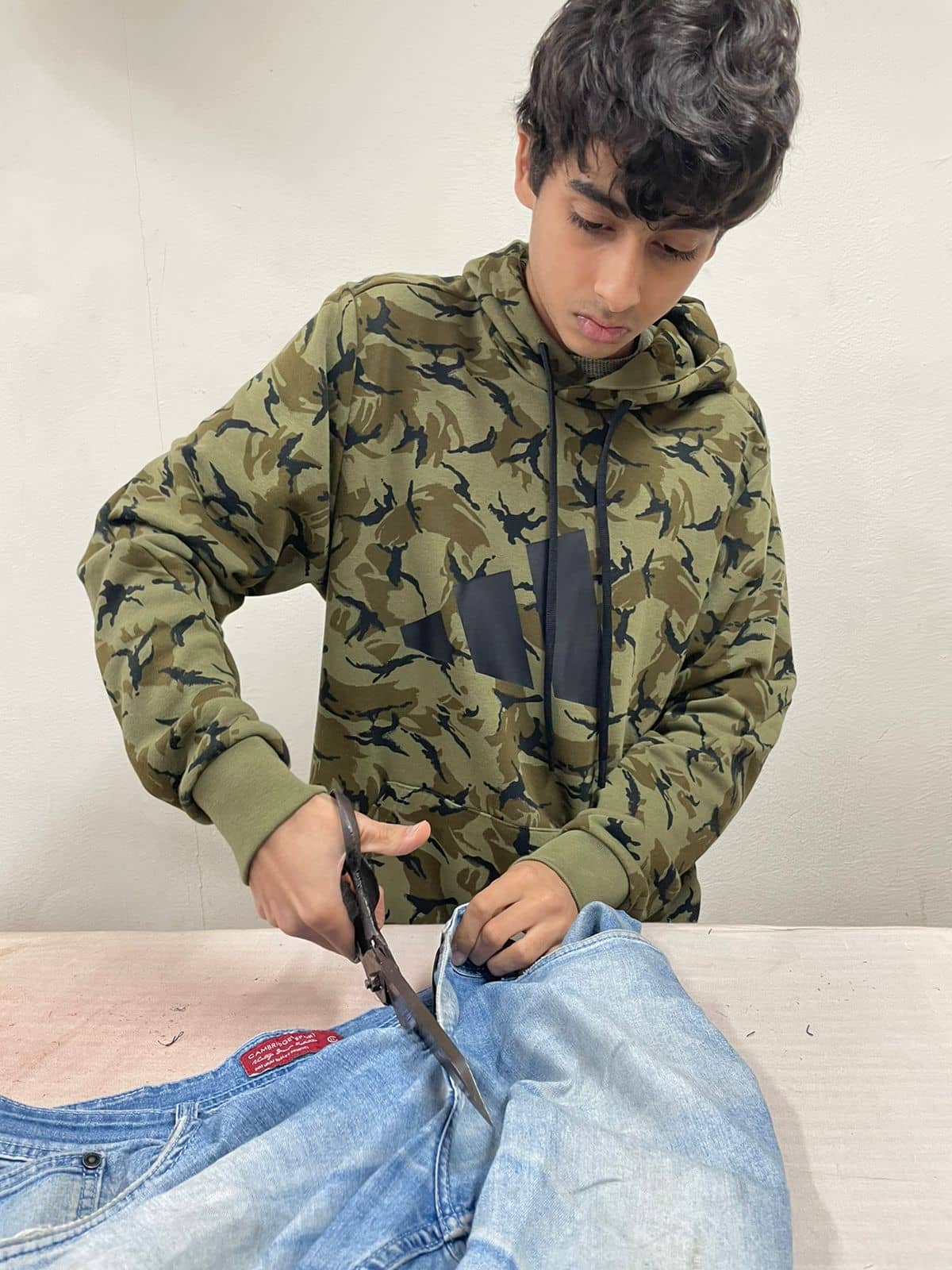
A Class 12 student at the Shri Ram School, Moulsari, Nirvaan started asking his friends and family to donate their old jeans and started making sleeping bags using them. After making the bags, he slept on his porch during a winter night to check how comfortable they were.
Nirvaan initiated collection drives using WhatsApp and later created an Instagram page. Initially, with only three donors, news about his initiative spread, and people from various parts of the country expressed interest in contributing.
To expand his reach, he established collection centres in cities such as Chennai, Mumbai, Bengaluru, and Pune. Nirvaan collaborated with corporates through their CSR initiatives for funding and connected with individual donors. He partnered with the Robinhood Army for bag distribution and collaborated with schools, colleges, hospitals, and corporations to organise collection drives and facilitate donations.
Recycling old jeans to provide cover
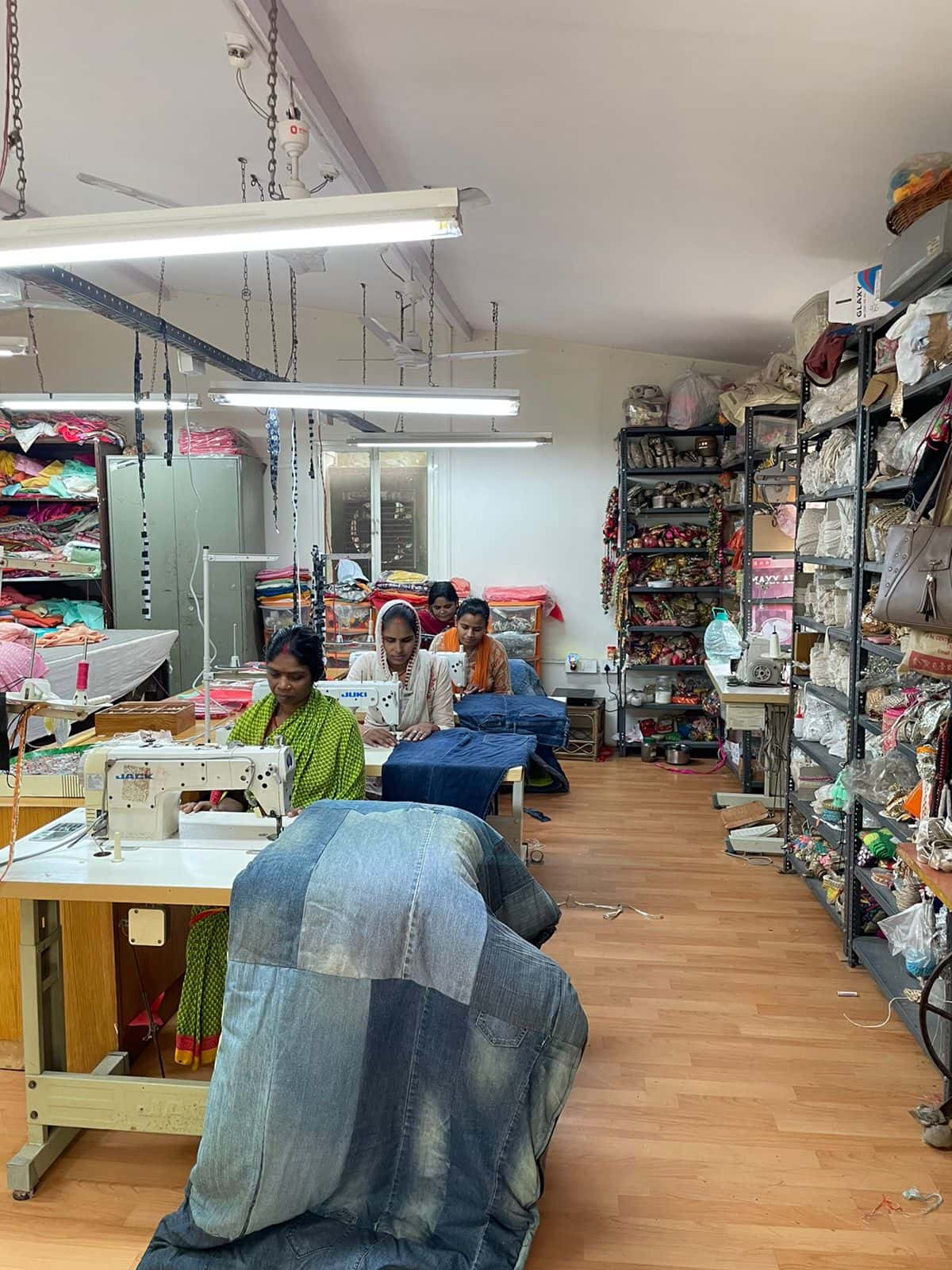
Explaining the process of stitching a sleeping bag, Nirvaan says one sleeping bag needs seven old jeans.
First, the jeans are cleaned and washed. Then, the belt and zip portion of the jeans are cut. The legs are cut into long strips and sewn together. Then a cloth lining is added inside for comfort along with a foam layer for insulation. The lining is filled using fabric scraps from Shivani’s boutique.
Today, Project Jeans employs 15 local women, including wives of tailors from Shivani’s unit and others from Rajokri village in New Delhi. Each bag costs Rs 800 to make, which includes Rs 500 labour cost, Rs 250 for the foam, Rs 25 for the zip and Rs 25 for other overheads.
Nirvaan says that they have distributed 2,000 bags so far. They also sent 200 sleeping bags to Turkey and Syria in 2023 for those impacted by the earthquake.
“We’ve repurposed over 120 million litres of water, which would have been required to make these bags otherwise. We are saving 70,000 litres of water per bag,” he adds.
Discussing the carbon emissions in the life cycle of jeans, he mentions that it takes 33.4 kg to produce one pair. He proudly states, “We’ve repurposed over 4 lakh kg of carbon emissions.”
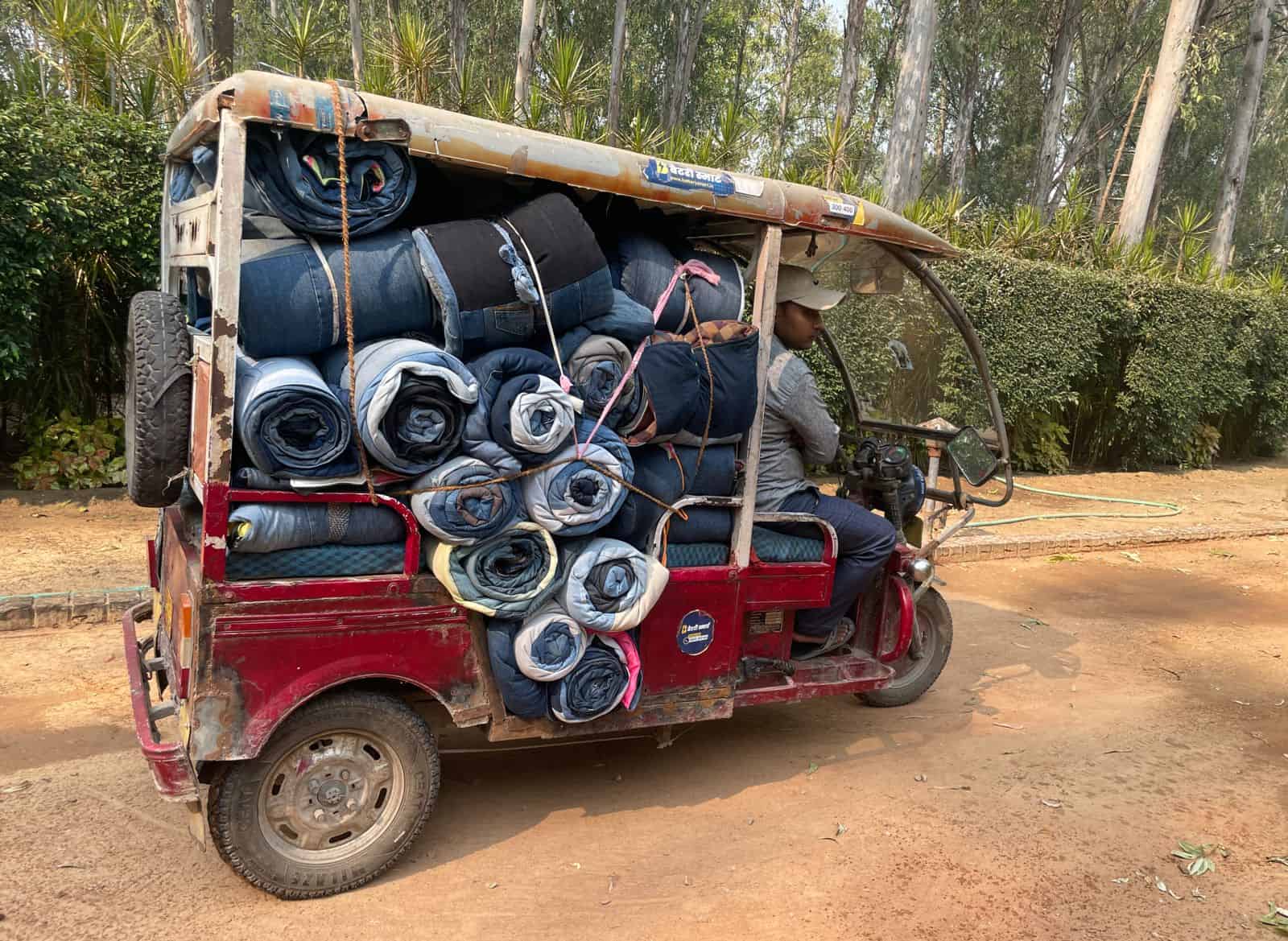
Nirvaan spreads environmental awareness through his monthly newsletter, Environotes. Launched in 2022, he has distributed 6,000 copies to Government school children in the national capital. Additionally, he conducts awareness sessions in educational institutions and corporations, shedding light on the environmental impact of the fashion industry.
“In schools, we learn about the harmful effects of firecrackers, cars and planes. Surprisingly, the carbon emissions from the fashion industry surpass those of the entire travel industry. Despite this, fashion pollution often goes unnoticed. My goal is to raise awareness and educate people about this issue,” he says.
Nirvaan won the Diana Award in 2023, established in memory of Diana, Princess of Wales, for his social action. Currently, he is planning to pursue an undergraduate degree in sustainability while continuing his work with Project Jeans, hoping that no denim ends up in landfills.
“Every child in the world deserves access to clean water, clean air and a warm bed to sleep in. We can all do our part to make this a reality by making conscious choices as consumers. Make informed choices before purchasing and disposing of any piece of clothing. Don’t throw any piece of clothing, instead donate it to organisations who donate or upcycle them,” he shares.
Join Nirvaan’s mission by providing warmth to one or more persons this winter. Donate here:
You can reach out to Nirvaan through his website or Instagram page.
Edited by Pranita Bhat
If you found our stories insightful, informative, or even just enjoyable, we invite you to consider making a voluntary payment to support the work we do at The Better India. Your contribution helps us continue producing quality content that educates, inspires, and drives positive change. Choose one of the payment options below for your contribution- By paying for the stories you value, you directly contribute to sustaining our efforts focused on making a difference in the world. Together, let’s ensure that impactful stories continue to be told and shared, enriching lives and communities alike. Thank you for your support. Here are some frequently asked questions you might find helpful to know why you are contributing?

This story made me
- 97
- 121
- 89
- 167



